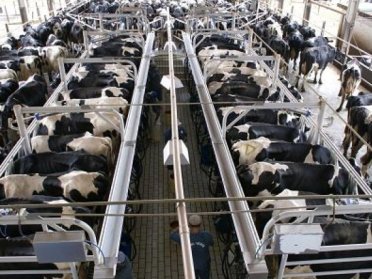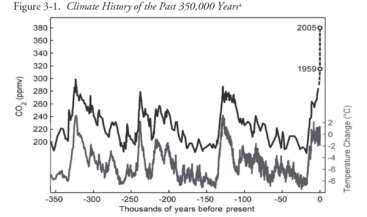
This classic comic strip Calvin and Hobbes satirizes the common ethical statement “The Ends Justify the Means”
Ethics plays a vital role in many fields of study: from politics to medical research, ethics committees are required in universities across the world to ensure that humane and responsible actions are being taken alongside the great leaps in progress that are presumably also being made. For the same reasons, environmental studies also has this requirement. When studying the processes of the earth and further determining whether humans have a positive or a negative impact on it, it is vital to understand that there are literally billions of lives at stake and thus the importance of ethics is affirmed.
I feel that it is important to have ethics within the field of environmental studies because without having an ethical checkup, policies ranging from the economic to the political in the field of environmental studies could not be properly evaluated as being ethical or moral. In essence, a proposed policy may be, in fact, not be moral despite it being sustainable or environmentally friendly, or viewpoints of politicians and public figures could be immoral based on what they believe is the better solution to an environmental problem. Several facets of the ethics of environmental studies will be explored in the following weeks, as reflected by the standard path that the study of environmental ethics takes.
First, we will discuss environmental problems in general. Environmental problems concern ethical conundrums a large scale that is difficult for many to comprehend. Since problems like climate change and ocean acidification do not happen overnight, the problems are hard to visualize and usually when an argument happens about them, it revolves around whether they are actually pressing problems.
The vast human achievement in the time of the anthropocene period has been connected to vast and unimitigated damage to the environment as a whole. Although technology and human understanding has furthered many lives, it has been seen to be detrimental to certain people and animals in the environment. This is one ethical query: which environmental problems are more important to address? There is no easy answer.

Factory Farms may seem to many a technological leap in agriculture and beneficial to humans but others argue that the treatment of the animals involved is cruel beyond measure.
Many people take different views on the ethics of environmental studies. Some are of the opinion that it is necessary to exploit the earth in order to better the living standards of mankind, and thus hold the Planetary Management viewpoint. On the other end of the spectrum are those who believe that caring for the earth and its inhabitants that are not humans is an ethical responsibility that all humans must partake in, or the Stewardship viewpoint. These viewpoints will also be discussed in a later post.
We will also discuss the methods of ethical reasoning as they compare and contrast with environmental studies analysis. Although many people may think that all practices and policies that are ethical are better for the environment, that is not always the case. Much of the time it takes critical analysis to properly address an environmental problem via an ethical, reasoned response.

Controversy often arises when population control policies force governments to limit childbirths. Some argue that this is morally wrong.
In addition, it is important to acknowledge that there are some advocates of sustainability and responsible care-taking of the Earth that actually contradict themselves in an unethical way. Even a self-professed environmental may be a hypocrite in their private lives.
Many times in environmental ethics it is found that, although there is a conservation of resources happening, the true motivations of the conservation is not evidently what it initially appeared. For example someone may preserve a national resource such as a waterfall for aesthetic reasons but some may be motivated because it would help preserve the migration patterns of salmon upstream. The latter reason may be thought of as more ethical and less anthropocentric, because it looks out for a species other than humans, but that is also another topic that will be addressed later.

If a beautiful location is picked out to be conserved as opposed to a marshy are that is bleak yet important is that morally wrong? This is one ethical conundrum.
Other topics of discussion such as environmental pragmatism, justice ethics, economics regulation, and more are also important parts of environmental ethics. Of course ethics also delves into the realm of eco-theology and schools of thought such as utilitarianism and Kantian ideology. Bodies of study such as eco-feminism in which females are discussed in relation to the Earth is also a big part of ethical thought, and is also relevant today.

A link between the oppression of women and the destruction of the environment is studied and discussed by people such as Dr. Vandana Shiva.
In general, the idea that there are ethical problems in environmental studies today is extremely relevant and important. The issues faced are more than just relevant to the idea of a more humane treatment of animals or the true sufferers of the long-term effects of climate change and are more far-reaching than previously imagined. In order for the problems to be resolved in a moral way, ethics must keep certain ventures in check.

